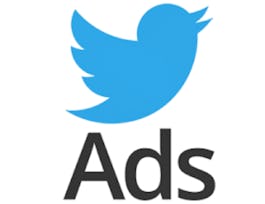Consumers search for virtually everything. This includes the things that small businesses do, from restaurants to bespoke products. When consumers search they get organic results along with paid results. Paid search ads are systematically designed to be relevant. As a result, they’re often useful at getting consumers where they want to go. Consumers don’t tune out paid search like other types of digital ads.



Search and Display Advertising
This course is part of Concepts, Strategies, and Analytics in Performance Marketing and Digital Advertising Specialization


Instructors: Chris J. Vargo
14,445 already enrolled
Included with
(90 reviews)
What you'll learn
Understand why search can be a powerful part of any marketing campaign
Plan a search campaign, including: setting economic goals, defining targeting parameters, and aligning a campaign with business goals
Build a search campaign from start to ongoing optimization
Leverage Google’s tools including optimization score, campaign planner, and automated bidding
Details to know

Add to your LinkedIn profile
8 assignments
See how employees at top companies are mastering in-demand skills

Build your subject-matter expertise
- Learn new concepts from industry experts
- Gain a foundational understanding of a subject or tool
- Develop job-relevant skills with hands-on projects
- Earn a shareable career certificate


Earn a career certificate
Add this credential to your LinkedIn profile, resume, or CV
Share it on social media and in your performance review

There are 5 modules in this course
This series of lectures provides an overview of search advertising, its history, and its role in the digital marketing landscape. The lectures discuss the evolution of search engines and the emergence of Google as the dominant player in the market. They also explain the process of search advertising, including bidding, audience targeting, and search engine optimization (SEO). The advantages and disadvantages of search advertising are explored, highlighting its relevance to consumers, effectiveness in generating leads, and potential challenges such as high competition and limited creative options. Finally, the lectures touch on the future of search advertising, with a focus on the increasing role of artificial intelligence and voice search.
What's included
3 readings3 assignments
In this lecture series, we delve into Google's dominance in the search and advertising market, exploring the debate surrounding its monopoly status and the implications of the Department of Justice's investigation. We examine the value of search intent in advertising, the basics of Search Engine Optimization (SEO), and the importance of landing page experience. Furthermore, we discuss the concept of impression share, the ongoing tension between Google's push for automation in PPC advertising, and the potential for automating campaign optimization using Python.
What's included
5 videos1 reading1 assignment
In this project, students will complete the Google Ads Search Study Guide, focusing on increasing efficiency with automated bidding, reaching valued customers with search audiences, boosting performance with optimization score, and increasing conversions with performance planner. Upon completion, students will take the Google Ads Search Assessment to earn their certification. They will then create a PDF of their certificate to submit for credit in the peer-review assignment.
What's included
2 readings1 peer review
This series of readings provides an overview of video advertising, banner advertising, and rich media in the digital marketing landscape. The lectures discuss the differences between these formats, their advantages and disadvantages, and their impact on consumer behavior. They also explore the future of video and rich media advertising, highlighting the increasing role of programmatic advertising, artificial intelligence, and emerging formats such as live broadcasting and virtual reality. Additionally, the lectures touch on the challenges faced by these advertising formats, such as ad blockers and complex ad placements.
What's included
3 readings3 assignments
This lecture series covers the evolution and various aspects of display advertising, from banner ads to video ads, and their effectiveness in achieving advertising objectives. Students will learn about the importance of ad design, quality, and attribution models, as well as the significance of selecting appropriate key performance indicators (KPIs) for each campaign. The lectures also delve into the limitations and challenges of video advertising, including measurement issues and viewability scores. By analyzing real-world video campaign data, students will develop critical thinking skills in assessing the value of various metrics and their impact on advertising campaign performance.
What's included
4 videos1 reading1 assignment
Instructors


Offered by
Recommended if you're interested in Marketing

University of Colorado Boulder

University of Colorado Boulder

Coursera Project Network

University of Colorado Boulder
Why people choose Coursera for their career




Learner reviews
Showing 3 of 90
90 reviews
- 5 stars
72.22%
- 4 stars
14.44%
- 3 stars
6.66%
- 2 stars
5.55%
- 1 star
1.11%
New to Marketing? Start here.

Open new doors with Coursera Plus
Unlimited access to 7,000+ world-class courses, hands-on projects, and job-ready certificate programs - all included in your subscription
Advance your career with an online degree
Earn a degree from world-class universities - 100% online
Join over 3,400 global companies that choose Coursera for Business
Upskill your employees to excel in the digital economy
Frequently asked questions
Access to lectures and assignments depends on your type of enrollment. If you take a course in audit mode, you will be able to see most course materials for free. To access graded assignments and to earn a Certificate, you will need to purchase the Certificate experience, during or after your audit. If you don't see the audit option:
The course may not offer an audit option. You can try a Free Trial instead, or apply for Financial Aid.
The course may offer 'Full Course, No Certificate' instead. This option lets you see all course materials, submit required assessments, and get a final grade. This also means that you will not be able to purchase a Certificate experience.
When you enroll in the course, you get access to all of the courses in the Specialization, and you earn a certificate when you complete the work. Your electronic Certificate will be added to your Accomplishments page - from there, you can print your Certificate or add it to your LinkedIn profile. If you only want to read and view the course content, you can audit the course for free.
If you subscribed, you get a 7-day free trial during which you can cancel at no penalty. After that, we don’t give refunds, but you can cancel your subscription at any time. See our full refund policy.

